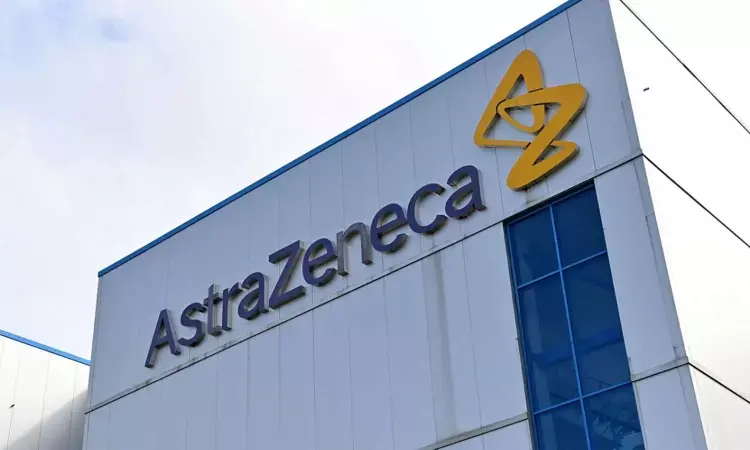- Home
- Medical news & Guidelines
- Anesthesiology
- Cardiology and CTVS
- Critical Care
- Dentistry
- Dermatology
- Diabetes and Endocrinology
- ENT
- Gastroenterology
- Medicine
- Nephrology
- Neurology
- Obstretics-Gynaecology
- Oncology
- Ophthalmology
- Orthopaedics
- Pediatrics-Neonatology
- Psychiatry
- Pulmonology
- Radiology
- Surgery
- Urology
- Laboratory Medicine
- Diet
- Nursing
- Paramedical
- Physiotherapy
- Health news
- Fact Check
- Bone Health Fact Check
- Brain Health Fact Check
- Cancer Related Fact Check
- Child Care Fact Check
- Dental and oral health fact check
- Diabetes and metabolic health fact check
- Diet and Nutrition Fact Check
- Eye and ENT Care Fact Check
- Fitness fact check
- Gut health fact check
- Heart health fact check
- Kidney health fact check
- Medical education fact check
- Men's health fact check
- Respiratory fact check
- Skin and hair care fact check
- Vaccine and Immunization fact check
- Women's health fact check
- AYUSH
- State News
- Andaman and Nicobar Islands
- Andhra Pradesh
- Arunachal Pradesh
- Assam
- Bihar
- Chandigarh
- Chattisgarh
- Dadra and Nagar Haveli
- Daman and Diu
- Delhi
- Goa
- Gujarat
- Haryana
- Himachal Pradesh
- Jammu & Kashmir
- Jharkhand
- Karnataka
- Kerala
- Ladakh
- Lakshadweep
- Madhya Pradesh
- Maharashtra
- Manipur
- Meghalaya
- Mizoram
- Nagaland
- Odisha
- Puducherry
- Punjab
- Rajasthan
- Sikkim
- Tamil Nadu
- Telangana
- Tripura
- Uttar Pradesh
- Uttrakhand
- West Bengal
- Medical Education
- Industry
AstraZeneca Koselugo gets Chinese nod for paediatric patients with neurofibromatosis type 1, plexiform neurofibromas

In addition to China, Koselugo is also approved in the US, EU, Japan and several other countries for the treatment of paediatric patients with NF1 and symptomatic, inoperable PNs.
Cambridge: AstraZeneca has announced that Koselugo (selumetinib) has been approved in China for the treatment of symptomatic, inoperable plexiform neurofibromas (PN) in paediatric patients with neurofibromatosis type 1 (NF1) aged three years and above.
The approval by the National Medical Products Administration (NMPA) in China was based on positive results from the SPRINT Stratum 1 trial sponsored by the National Institutes of Health's National Cancer Institute (NCI) Cancer Therapy Evaluation Program (CTEP). The trial showed Koselugo, an oral treatment option, reduced the size of inoperable tumours in children.
NF1 is a rare, progressive genetic condition affecting one in 3,000 individuals worldwide, most commonly diagnosed in children under the age of 10. In 30-50% of patients, tumours develop on the nerve sheaths (plexiform neurofibromas) and cause clinical issues such as disfigurement, motor dysfunction, pain, airway dysfunction, visual impairment and bladder or bowel dysfunction.
Li Qingfeng, Vice President of Shanghai Ninth People’s Hospital, JiaoTong University School of Medicine, Chairman of Department of Plastic and Reconstructive Surgery, said, “Children living with NF1 PN may face physical challenges and significant disruption to their daily lives, and early intervention is essential as tumour growth is often progressive and rapid, especially in the first decade of life. The approval of Koselugo in China has the potential to change the treatment trajectory of this debilitating genetic condition, providing a new option for addressing inoperable tumours by targeting the underlying cause of tumour growth through MEK inhibition.”
Marc Dunoyer, Chief Executive Officer, Alexion, said, “Koselugo offers hope for children whose quality of life and overall well-being is impacted by the growth of painful, debilitating tumours throughout the body. We are proud to bring forward a new, innovative treatment option to the NF1 community in China, delivering on Alexion’s commitment to reach more people living with rare diseases in China, and transform the lives of patients and caregivers across the globe.”
Results from the SPRINT Stratum 1 Phase II trial were published in The New England Journal of Medicine and showed that Koselugo demonstrated an objective response rate (ORR) of 66% (33 of 50 patients, confirmed partial responses) in paediatric patients with PNs in NF1 when treated with Koselugo as twice-daily oral monotherapy. ORR is defined as the percentage of patients with confirmed complete (disappearance of PNs) or partial response (at least 20% reduction in tumour volume).
Koselugo blocks specific enzymes (MEK1 and MEK2), which are involved in stimulating cells to grow. In NF1, these enzymes are overactive, causing tumour cells to grow in an unregulated way. By blocking these enzymes, Koselugo slows down the growth of tumour cells.
In addition to China, Koselugo is also approved in the US, EU, Japan and several other countries for the treatment of paediatric patients with NF1 and symptomatic, inoperable PNs.
Read also: DCGI okays AstraZeneca's breast cancer drug Trastuzumab deruxtecan
Ruchika Sharma joined Medical Dialogue as an Correspondent for the Business Section in 2019. She covers all the updates in the Pharmaceutical field, Policy, Insurance, Business Healthcare, Medical News, Health News, Pharma News, Healthcare and Investment. She has completed her B.Com from Delhi University and then pursued postgraduation in M.Com. She can be contacted at editorial@medicaldialogues.in Contact no. 011-43720751


